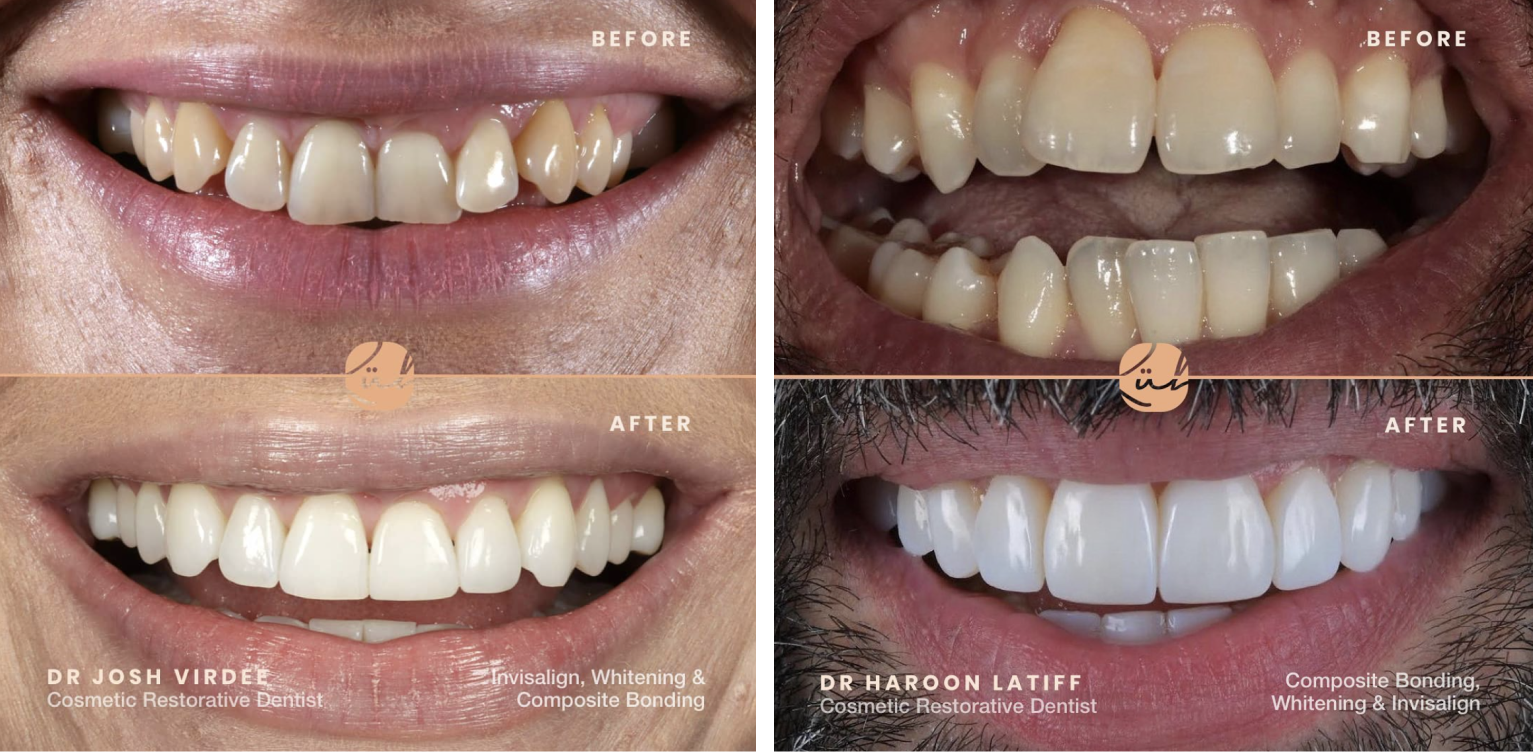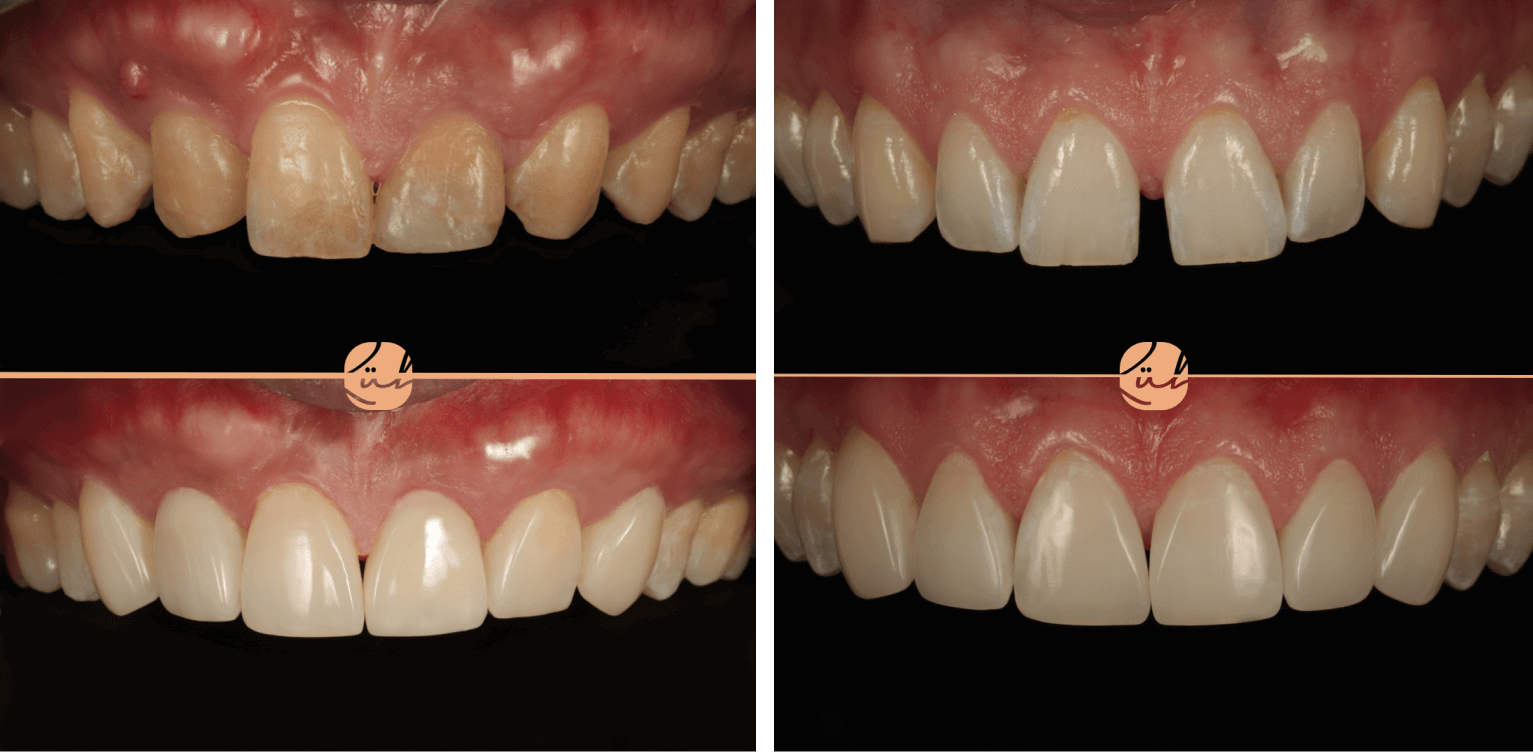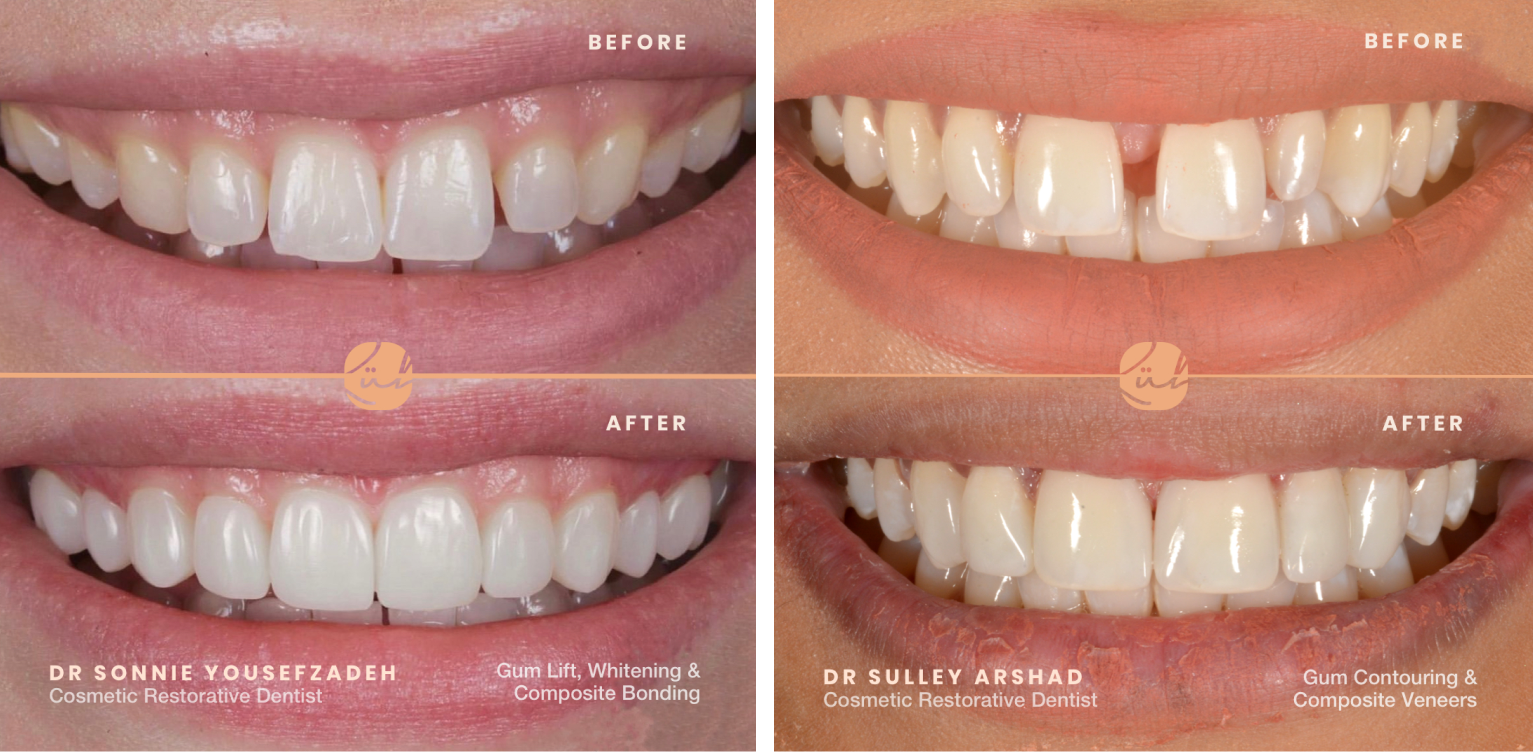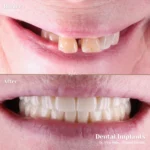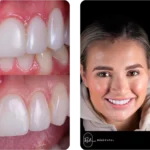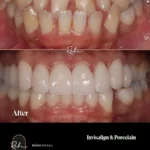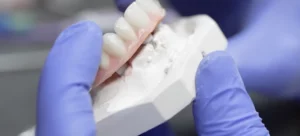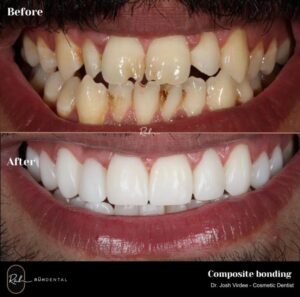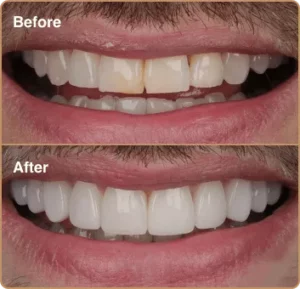Can you have composite bonding on crooked teeth?
With the introduction of more advanced dental technology, techniques and materials, fixing crooked teeth doesn’t have to be a hassle, and one of the most popular solutions is composite bonding. It’s a simple, fast process that can dramatically improve your smile quickly and affordably. Here’s a closer look at how composite bonding can fix crooked teeth.
What Is Composite Bonding?
Composite bonding is a cosmetic dental procedure using composite material that can be molded and shaped to fit over teeth to improve their appearance. The cosmetic dentist will begin by preparing the surface of the teeth so that the material will stick better. Then they will apply the composite bonding material onto the tooth structure and hand sculpt it, shape and polish it according to your specific needs. It can also be used to repair chips, cracks, and gaps in your teeth as well as reshape them or make them look longer or wider. See below some work from our clinicians
Composite bonding can often mask crooked teeth where orthodontics is not suitable or a patient would prefer not to have orthodontic treatment. It is important to know that if the misalignment of the teeth is excessive, composite bonding may not be possible and alignment with invisalign can be used to align the teeth first.
The reason for this is that either the natural tooth may be adjusted (which we like to avoid) or the composite bonding will end up looking bulky and very unaesthetic. Our goal is to give you the very best outcome and will discuss this in more detail at your consultation appointment
How long does it take?
The biggest advantage of composite bonding is that it can be completed in one appointment as explained by
Dr. Justin Glaister below:
Does the process hurt?
The great news is that having composite bonding does not hurt. The reason for this is that the procedure is purely additive which involves placing the composite resin on top of the tooth structure in a thin layer to mask discoloration or problems with shape and/or size. As this requires no drilling or damage to the surface of the teeth, composite bonding should not cause any pain or need injections. There are some rare cases in situations where the teeth are quite sensitive, but this can be managed
with your dentist.
When Should I Replace My Composite Bonding?
If you notice that your composite bonding is beginning to chip or wear away after a few years, then it may be time for a touch-up or replacement. Other signs that you need new composite bonding include visible discoloration or staining and visible gaps between the edge of the bonded area and surrounding teeth. If any of these signs become apparent over time, contact our team for a maintenance polish.
Benefits of Composite Bonding
Composite bonding is an attractive option for many patients because it’s quick and easy, requires no drilling (if the teeth are straight enough as mentioned above) or injections. Furthermore, most treatment appointments only take a morning or afternoon to achieve an instant result. The biggest advantage of composite bonding is that it offers a more affordable way to improve your smile without having to resort to more expensive treatments such as Invisalign or porcelain veneers.
Composite bonding is not as invasive
As composite bonding requires no drilling or adjustment to the surface of the teeth, it is a relatively efficient and non-invasive procedure. The alternatives such as porcelain veneers and crowns require adjustment of the tooth surface and as a result, are more invasive. If you have already had composite bonding that you are unhappy with it can be removed and replaced with little or no damage to the underlying tooth structure, which is why it is such a popular treatment option
Composite Bonding is an affordable option
Composite bonding is an affordable and painless way to improve your smile and make it look better than ever. The biggest advantage of composite bonding is that it’s much less expensive than other dental treatments such as porcelain veneers or crowns.
Composite bonding offers faster results
Composite bonding offers faster results and can be completed in one visit to the dentist. The other alternatives such as porcelain veneers require at least 2 appointments, which may or may not be convenient. On the other hand composite bonding can be completed in one morning or afternoon. Whilst Invisalign can help with crooked teeth, it will take longer than both of the other options as it will move the slowly teeth into the desired position. In addition, composite bonding is reversible—so if you don’t like the results, you can always have them removed or corrected later on down the line.
What aftercare should you do?
If you’ve recently had composite bonding done, you’re probably eager to show off your new smile. But before you do, there are some important things to keep in mind when it comes to aftercare.
Keep It Clean
In order to keep your composite bonding looking its best, it’s important that you maintain good oral hygiene. Brush and floss your teeth twice a day and don’t forget about the area around the bonding. Make sure you use a non-abrasive toothpaste so as not to damage the material. Regular checkups at the dentist are also recommended, as they can help catch any problems that may arise from poor aftercare early on.
Watch What You Eat
Since composite bonding is made of a plastic resin material, it can be damaged by hard or sticky foods. Avoid chewing on hard items like ice cubes or candy bars as this can cause chips and cracks in the material. Also steer clear of acidic drinks such as soda and citrus juices, as they can erode the surface of the material over time. Eating a balanced diet of healthy foods is always recommended both for maintaining dental health and preserving your composite bonding longer.
Protect Your Teeth
Be sure to wear a mouthguard when playing contact sports or engaging in any activity where there is potential for trauma to the face or mouth area. Wearing a mouthguard will help protect both your natural teeth and your composite bonding from chips or breaks caused by impact injuries. You should also avoid biting down on hard objects such as pens and pencils which could cause damage over time if done consistently.
What are the pros and cons of composite bonding?
One of the major benefits of composite bonding is that the procedure can be completed in one visit. Unlike porcelain veneers or Invisalign, which can take multiple visits and require more time in the dentist’s chair, composite bonding can usually be done in just one appointment. The process itself also doesn’t require any drilling or anesthesia. Additionally, composite bonding is much less expensive than other cosmetic dentistry procedures such as porcelain veneers or crowns. Lastly, it is reversible if you don’t like the results of the procedure—something that cannot be said about most other forms of cosmetic dentistry.
The Cons of Composite Bonding
While composite bonding has many advantages over other forms of cosmetic dentistry, there are also some drawbacks to consider before making your decision. For example, composite bonding does not last as long as other forms of cosmetic dentistry such as porcelain veneers or crowns—it typically only lasts for three to five years before needing to be replaced. Additionally, because it is made from plastic-like material, it is more prone to staining than other types of dental treatments such as porcelain veneers. Finally, it may not be suitable for all cases; for example, if you have severe tooth decay then composite bonding may not be an appropriate treatment option for you since it only covers up existing damage rather than addressing the underlying issue itself.
How much does it cost?
Composite bonding can range from £250 per tooth for edge bonding or from £350 per tooth for a full composite veneer. The cost and options will be dependent on what you will need and will be discussed at your consultation appointment
How Ruh Dental can help with your
crooked teeth?
Crooked teeth can be fixed in a number of ways depending on your clinical needs, preference and specific budget. In general we recommend Invisalign to correct any alignment issues to quickly straighten and align the teeth. Furthermore composite bonding may only be possible once the teeth are aligned and the bite is positioned correctly. In some instances composite bonding can be used to compensate for problems with alignment or when there are gaps and/or spaces. Quite often we use a combination of Invisalign, composite bonding or porcelain veneers to give the best outcome. At Ruh Dental we cater for all needs and wants to give the best outcome to last as long as possible.
Smile Makeover Options
Here are some options to help you understand the choices available to you with their relative costs, durability and invasiveness
| Composite Bonding / Veneers | Porcelain Veneers | Invisalign | |
|---|---|---|---|
| Cost | From £350 per tooth | From £900 per tooth | From £3000 to straighten and align the teeth |
| Durability | 5-7 years | 10-15+ years | Lifetime retention required |
| Invasiveness | No drilling to the teeth | Some adjustment to the tooth surface and shape | No drilling required, teeth are aligned |





